Hung Yen province has nearly 54km of coastline and 5 major river estuaries. Spanning this area, the religious and spiritual life of the coastal people is rich and unique. Among these, spiritual beliefs help fishermen overcome rough seas and strong winds, remain steadfastly connected to the vast ocean, and strive to enrich their homeland.

The Cửa Lân Temple in Đồng Châu commune is a place of worship for the Four Holy Mothers of the Southern Sea – deities commonly worshipped in coastal villages in the North and Central regions of Vietnam. From the perspective of folk legends and historical accounts, there are many different versions of the Four Holy Mothers, but they all praise the sacredness of these deities who assisted the king and the people in fighting invaders. The villagers, grateful for their help, erected a temple in their honor. In the past, the village of Ngải Châu, adjacent to the sea and near Cửa Lân, was a mooring place for fishing boats and shrimp farms. In 1835, local fishermen contributed labor and resources to build the Cửa Lân Temple to worship the Four Holy Mothers of the Southern Sea, reflecting the strong belief in the worship of the Holy Mother among the coastal inhabitants, expressing their hope for the Holy Mother's blessings for calm seas, enabling fishermen and their boats to fish and harvest seafood. For many years, Mr. Pham Ngoc Son has served as the caretaker of Cua Lan Temple, welcoming local people and visitors from all over to offer incense and express their gratitude to their ancestors. He shared: "Previously, the people in the area developed their economy from salt production, later moving on to aquaculture, inshore and offshore fishing. All these activities are closely linked to the spiritual life at the temple, along with the hope that every fishing trip will be successful."
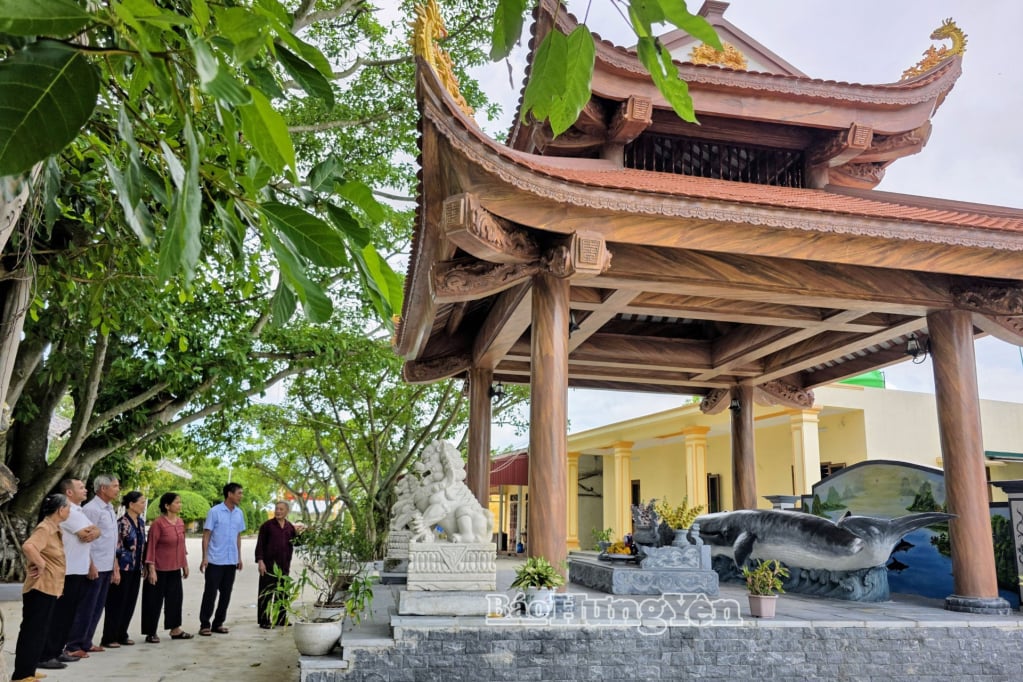
The Cửa Lân Temple also houses a tomb dedicated to whales (Ông Cá) – the guardian deity of fishermen. According to Mr. Bùi Ngọc Khẩn, head of Khải Châu village, Đồng Châu commune, there is a legend that in the early days of this land, every year in the third lunar month, a herd of whales would come to the Cửa Lân Temple to worship the sacred goddess. When fishermen fishing along the coast found a very large whale skeleton washed ashore on the Đồng Châu coast, they reported it to the authorities and brought it to the temple for burial and worship, praying for safe fishing in the coastal area.
In Hung Long village, Dong Tien Hai commune, according to legend, Saint Hoang Bo - the deity who governs the riverine region - transformed into Minh Duc Dai Vuong and manifested at Hung Long Temple. Currently, the temple is being renovated by the local people and visitors from all over, maintaining the traditional rituals and ceremonies during the annual festival with great care. Mr. Pham Van Chinh, Deputy Head of the Culture and Social Affairs Department of Dong Tien Hai commune, said: "In 2025, the Hung Long Temple festival will become a national intangible cultural heritage, showing the recognition of the Ministry of Culture, Sports and Tourism for the preservation and promotion of the unique cultural identity of the locality. We hope that Hung Long Temple will be a destination on the journey of experiencing cultural and spiritual tourism for visitors from all over."
As a national intangible cultural heritage, salt-making in Thai Thuy commune is closely associated with the Temple of the Salt Goddess - a place commemorating the person who contributed to spreading the salt-making profession in this coastal region. Ancient texts record that the Salt Goddess was none other than Tam Phi Nguyen Thi Nguyet Anh, wife of King Tran Anh Tong.

In the minds of the people, the Salt Goddess is not only a symbol of occupational protection but also embodies the spirit of persistent labor and deep connection with the sea. Salt production brings economic value to the lives of the people and is closely linked to local culture, as this is the only commune in the province today that still preserves the traditional method of salt production using the sand-drying method. Mr. Vu Duc Tuan, from the Management Board of the Salt Goddess Shrine, said: "The relic is over 700 years old. The people are grateful to her for discovering a way to exchange agricultural products to serve the lives and production in this area."
Amidst the rich and diverse colors of spiritual and cultural traditions, the beautiful customs and practices passed down through generations serve as a spiritual "foundation," helping each fisherman feel more secure and committed to their homeland's sea. Traditional festivals held at these historical sites are opportunities to strengthen community solidarity, thereby working together to preserve and promote national cultural identity.
Tu Anh
Source: https://baohungyen.vn/diem-tua-tinh-than-cua-ngu-dan-3186771.html






![[Photo] Prime Minister Pham Minh Chinh presides over a meeting on private sector economic development.](/_next/image?url=https%3A%2F%2Fvphoto.vietnam.vn%2Fthumb%2F1200x675%2Fvietnam%2Fresource%2FIMAGE%2F2025%2F12%2F20%2F1766237501876_thiet-ke-chua-co-ten-40-png.webp&w=3840&q=75)








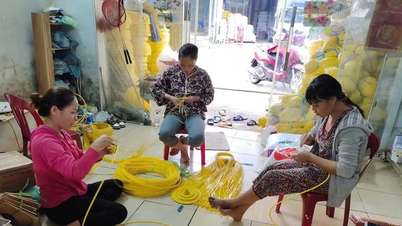
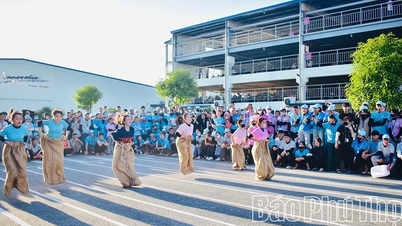






















































































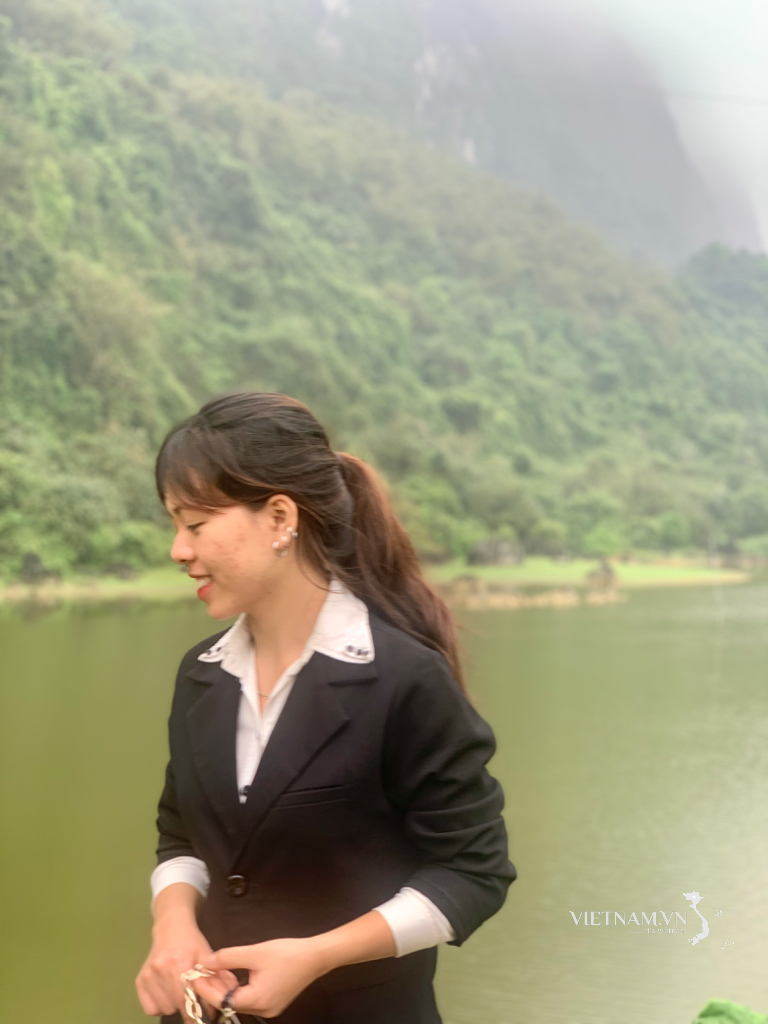

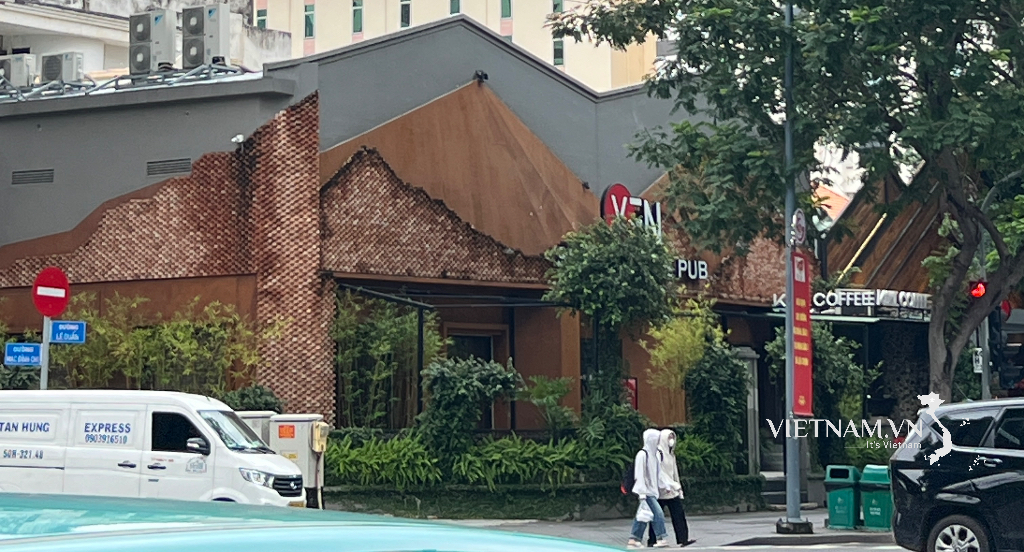

Comment (0)